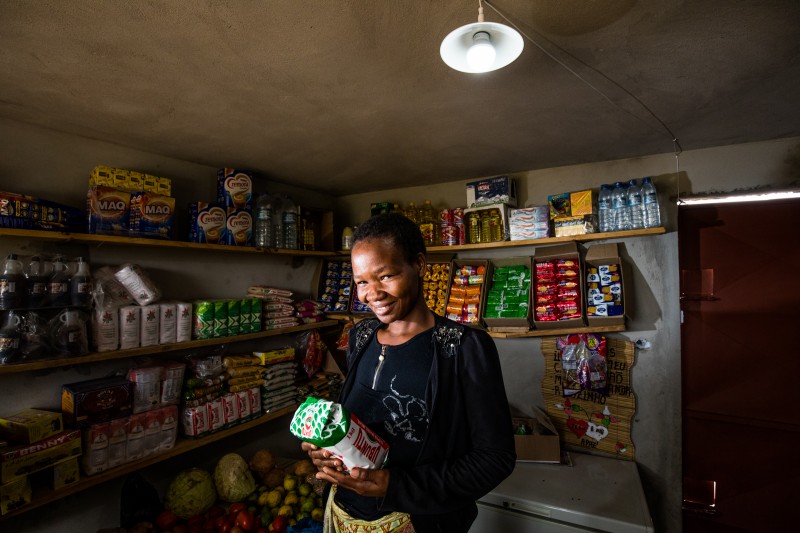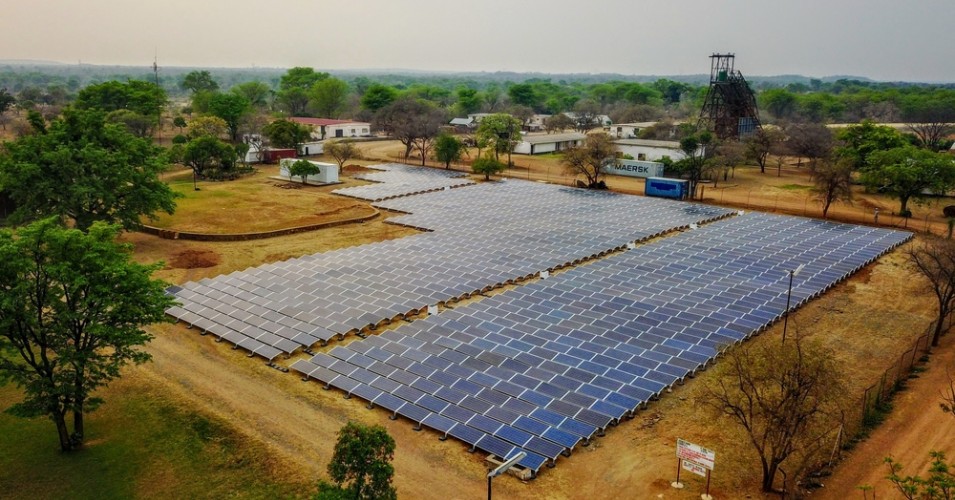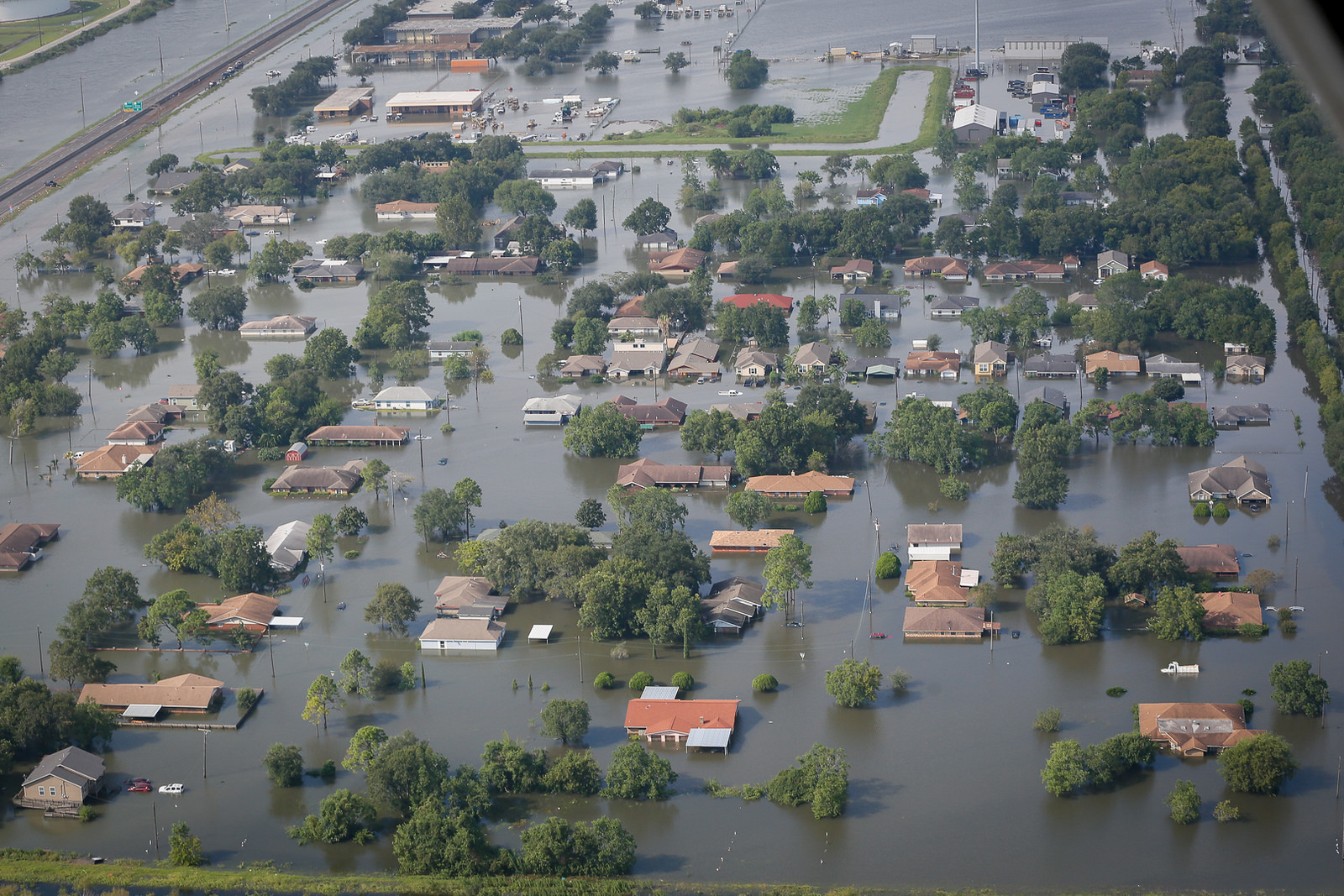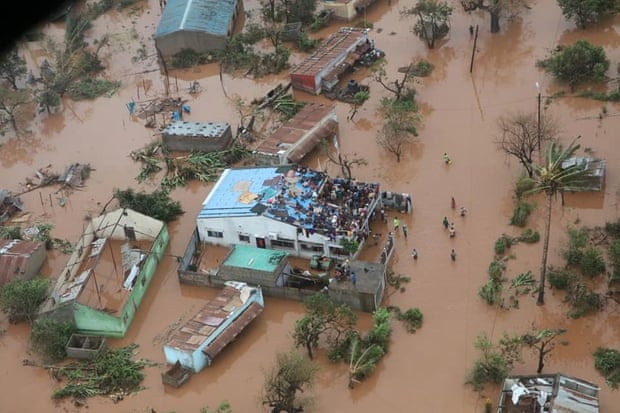|
Get AfricaFocus Bulletin by e-mail!
Format for print or mobile
Africa/Global: Editor´s Commentaries, 2019
AfricaFocus Bulletin
December 16, 2019 (2019-12-16)
(Reposted from sources cited below)
Editor's Note
Just before this year’s global climate summit opened in Madrid
recently, researchers announced that emissions of carbon dioxide from fossil fuels will
hit a record high in 2019. Deeper and faster cuts are needed,
beginning immediately and continuing over the next 10 years. The
primary responsibility for cutting fossil fuel emissions falls to
the developed countries that are historically the greatest
contributors to the problem, as well as to countries with large
populations such as China and India that are also now among the top in global emissions. Africa is the
continent most vulnerable to the devastating effects of climate
change, which are already being felt. But with a thriving off-grid
solar market and hundreds of millions of people waiting for
electricity, Africa also offers huge potential for contributing to
solutions.

Photo to right: A solar-powered lamp allows this shopkeeper to stay open at night. Credit:
Solarworks!
As regular readers are aware, AfricaFocus coverage of the climate
crisis has stressed both the vulnerability of the continent and
Africa´s potential to take its own initiatives to move beyond
dependence on fossil fuels. Yet such messages need to be heard by
people beyond those who are already paying attention to African
realities. This year I have reached out to wider audiences by
distributing content developed for AfricaFocus through other online
outlets as well.
These include Foreign Policy in
Focus, which has a large audience of U.S. progressives who are
interested in global issues but who do not, in many cases,
regularly follow sources covering Africa.
This AfricaFocus Bulletin contains the full text of two recent
commentaries for Foreign Policy in Focus on the climate crisis, as
well as excerpts and links to five more commentaries
published there this year. I am pleased that four of these
were also featured on Commondreams, which carries articles on a wide range of issues and is one
of the largest online sources read by progressive U.S. activists.
Regular readers of AfricaFocus will find that much of the content
in these articles is familiar to them. But I hope you find them
interesting and readable enough to share with your U.S. friends who
may not be AfricaFocus subscribers. If you visit the original
articles on FPIF or Commondreams, you will see a share icon for
Facebook, as well as other social media platforms, and many shares
already. Sharing on your own social media is one of the most
effective ways to help ensure that these critical topics reach wide
and diverse audiences.
+++++++++++++++++++++++++++++++++++++++++++++++++++
Announcement, thanks, and request for your continuing support
This issue of AfricaFocus Bulletin is the last for 2019.
Publication will resume in mid-January 2020.
This also marks 25 years that I have been editing and publishing
AfricaFocus and its predecessor publications (for more details and
links to a very short survey for readers, visit https://mailchi.mp/igc/25-years).
I am grateful to those of you who have made this quarter-century
run possible, whether by providing financial support to AfricaFocus
or in other ways. As you know, AfricaFocus strives for a multiplier
effect by reposting selected content that is available online but
getting less attention than it deserves. This model would not have
been possible without those of you who have directly or indirectly
shared your insights with me over the years.
At 77, I will refrain from promises to continue AfricaFocus for
another 25 years. But I plan to do so as long as I am able and as
long as readers find it useful, hopefully for at least several more
years into the decade of the 2020s. I also hope to do other writing
such as that featured below, aimed at a larger audience concerned
about global issues but for whom the critical role of Africa is
rarely front and center.
Special thanks to those of you have contributed this year through a
voluntary subscription payment or contribution.
If you find AfricaFocus useful and believe that it is worth
continuing, but have not contributed, I hope you will consider
making a contribution now through the links below.
You can make secure contributions of any amount
through Paypal: https://paypal.me/AfricaFocusBulletin
Visit
http://www.africafocus.org/support.php to see suggested
voluntary subscription payments or to print out a form to send in
with your check or money order.
Checks should be made out to William Minter and designated for
AfricaFocus, and mailed to William Minter, 4401-A Connecticut Ave
NW, #341, Washington, DC 20008.
++++++++++++++++++++++end editor's note+++++++++++++++++
|
Africa Could Power a Green Revolution

With a thriving off-grid solar market and hundreds of millions of
people waiting for electricity, the continent offers huge potential
for renewables.
By William Minter, December 5, 2019
https://fpif.org/africa-could-power-a-green-revolution/
Just before this year’s global climate summit opened in Madrid
recently, researchers announced that emissions of carbon dioxide from fossil fuels will
hit a record high in 2019.
Although the 0.6 percent rate of growth is less than last year’s
2.1 percent, the total which must be cut to prevent the most catastrophic and irreversible
scenarios is still increasing. Deeper and faster cuts are
needed immediately and over the next 10 years. The primary
responsibility to cut fossil-fuel emissions falls to developed
countries that bear the greatest historical responsibilities, as
well as to countries with large populations such as China and India
that are also now among the top in global emissions.
However, from off-grid solar home systems to utility-scale solar
and wind, the potential for major advances in the use of renewable
energy is also growing rapidly on the African continent.
With stepped-up adoption of these technologies, African countries
could contribute significantly to mitigating the global climate
crisis. This would also reduce the ongoing damage to the health of
their citizens, whether from kerosene lamps in rural areas,
gasoline generators to backup unreliable
power grids, or massive coal
pollution in South Africa.
Driven by technological innovation, steadily falling costs, and the
visible effects of the climate crisis, this transition is still
hampered by vested interests in fossil fuels and by foot-dragging
on the part of government planning agencies. But there is more and
more evidence that renewable options are not only better for the
climate and for health, but also the least expensive path. There is
much untapped potential for replacing kerosene lamps, backup power
generators, and coal power plants with cost-effective renewable
alternatives. Innovative energy companies and investors are taking
note.
East African countries have pioneered off-grid solar, laying out a
model that other African countries could follow. While rural areas
are still the primary markets for solar home systems, power grids
in most African countries are so prone to power outages that many
homes and businesses on the grid must rely on gasoline or diesel
generators for backup. Solar systems can already begin to replace
smaller generators, and further technological progress could make
even larger systems cost-effective.
South Africa is still overwhelmingly dependent on expensive and
unreliable coal-fired power plants, which supply 77 percent of the
country’s electricity. Recent studies show that for new energy
installations, renewable energy is already the cheapest. But such a
shift faces enormous obstacles, not least the multiple dysfunctions
and effective bankruptcy of Eskom, the scandal-ridden state-owned
electricity agency.
Off-Grid Solar
Rapid expansion in solar home systems has been well documented as
feasible.
In September 2019, the Global Off-Grid Lighting
Association (GOGLA) reported on research in Kenya, Mozambique,
Rwanda, Tanzania, and Uganda with customers of seven off-grid solar
companies. Researchers tracked 1,419 customers who bought solar
home systems, with interviews at 3 months and 15 months after
purchase. Ninety-five percent of respondents reported significant
improvement in quality of life, with 95 percent saying they would
recommend their product to a friend or relative.
According to Forbes, there are 600 million
people without access to electricity in Africa, 71 million of them
in Nigeria. “At this point, we are barely scraping the surface” of
potential demand, said Alistair Gordon, chief executive of Lumos, the largest provider of
off-grid solar in Nigeria and Côte d’Ivoire. The company currently
has 100,000 customers and expects to provide solar power to 100
million people in the next 5-7 years.
There is also the potential to replace backup generators, notes the International Finance
Corporation.
“With rapid improvement in efficiency, performance, and economies
over recent years, distributed solar and storage technologies now
offer a superior and effective alternative to the backup generators
that are proliferating across much of the developing world.” In
Nigeria alone, an estimated 22 million small gasoline generators
(excluding larger diesel generators) are reported to have a
collective capacity as much as 8 times the capacity of the electric
grid. They are essential to many small businesses as well as to
households.
According to the Access to
Energy Institute, “An effective substitute for small gasoline
generators, such as solar systems, can tap into a $12 billion-a-
year market in Nigeria alone.” Upfront costs are still high, but
savings come from eliminating the need to buy fuel. Further
research on more efficient systems, they calculate, has the
potential to reduce the break-even period to 5-7 years. And while
gasoline generators last approximately 5 years, solar systems have
a life span of approximately 20 years.
Trapped in Coal in South Africa
The release of South Africa´s Integrated Resources Plan (IRP) in
October 2019 was preceded by considerable optimism among renewable energy
advocates. The government promised to “articulate the lowest-
cost option for the future energy mix for South Africa, with
increased contributions from renewable energy sources.” And
President Ramaphosa spoke of an $11 billion green-energy initiative.
But when the IRP was announced, the plan called not only for
decommissioning 10,500 MW of aging coal plants, but also for
launching 1,500 MW of new coal plants. This was inconsistent with
the least-
cost path scenario detailed by the government Council for
Scientific and Industrial Research in November 2018. And it was vigorously criticized
by South African environmental justice organizations.
“There is no reasonable basis for building new coal plants when the
technology and costs are clearly in favour of renewables and
flexible generation,” says Makoma Lekalakala of Earthlife Africa.
Coal plants built in the 2020s are likely to be abandoned long
before they are paid off, the coalition of environmental groups
noted.
The South African Parliament has approved a
$4 billion bailout for Eskom’s debt, much of it due to cost
overruns of $20 billion on the giant Medupi and Kusile coal plants.
And a devastating report by an outside
corporate consulting firm concluded that Eskom has become ”an
operationally dysfunctional, financially insolvent, unreliable, and
corrupt entity,” arguing that urgent attention to fixing these
basic problems must take priority over renewable energy. Renewable
energy advocates agree that implementation of any plans, including
integration of renewables into the grid, requires fundamental
reform in Eskom’s management. But, they say, doubling down on coal
will worsen rather than improve the situation.
Unless South Africa’s policies change, therefore, the potential for
advance in renewable energy is likely to be realized more rapidly
by hundreds of thousands of off-grid consumers around the continent
than by entrenched power companies such as South Africa’s Eskom.
******************************************************************
Tax Dodging 101: The Aircastle Model

The GOP has made it easier than ever for companies to pay
$0 in taxes. A Connecticut-based airplane company shows it was
already too easy.
By William Minter
Foreign Policy in Focus, September 4, 2019
https://fpif.org/tax-dodging-101-the-aircastle-model/
Aircastle Ltd. is not a household name, but if you’ve flown on
South African Airways, KLM, or any of more than 80 other airlines,
you’ve probably traveled on an airplane the Connecticut-based
company owns and manages.
The company´s business model is based on buying, selling, and
leasing aircraft worldwide. Its corporate structure minimizes the
payment of taxes by using a complex arrangement of subsidiaries,
all managed from Connecticut, Ireland, or Singapore.
These arrangements, recently highlighted in the
#MauritiusLeaks investigation by the International
Consortium of Investigative Journalists (ICIJ), are legal. But they
have allowed the company to pay minimal taxes, including no
corporate taxes in the United States on income from their aircraft
leases.
Aircastle, of course, isn’t alone among large American companies in
lowering their taxes through creative accounting. Well-known giants
such as Amazon and
Apple
do so as well.
But the recent revelations on Aircastle’s use of Mauritius as a tax
haven provide a helpful window into how such tax dodges can use
offshore companies set up primarily for that purpose. Getting to
zero with tax avoidance became even easier with the new Republican tax cuts in
2017, but Aircastle was already well on the way to
that objective.
For example, when Aircastle decided to do business in South Africa
in 2010, as the ICIJ and Quartz Africa
revealed in July 2019, it turned to a Bermuda-based law
firm to help it set up six subsidiaries in Mauritius: Thunderbird 1
Leasing Ltd. along with five other companies named Thunderbird 2
through 6. As was Aircastle´s common practice, each company was to
own a specific aircraft. South African Airways made their lease
payments to the subsidiaries in Mauritius, each of which was owned
in turn by an Aircastle subsidiary in Bermuda or Delaware.
Since South Africa and Mauritius have a tax treaty allowing this,
Aircastle paid Mauritius at the low Mauritius rates on the income
from the leases ($772,735 a month for the first A300-200 leased by
South African Airways from Thunderbird 1 beginning in 2011). From
2011 through 2014, according to documents leaked to ICIJ,
Thunderbird 1 paid a total of $382,600 in Mauritius taxes, a 1.59
percent tax rate on $24 million in operating profits.
Aircastle paid no taxes on these profits either in South Africa or
in the United States.
[
more ...]
*******************************************************************
The Green New Deal Must Be Global
For a planet-wide climate crisis, solutions must also span the
planet.
By William Minter. Originally published in OtherWords.
Foreign Policy in Focus, August 14, 2019
https://fpif.org/the-green-new-deal-must-be-global/
June 2019 was the hottest June in recorded history. July was
even hotter — in fact, it was the hottest month ever recorded worldwide, as a
wide swath of the continental United States sweltered with heat
indexes of over 100 degrees.
Unless new action is taken to curb emissions driving the climate
crisis, warns the Union
of Concerned Scientists in a new report, the worst is yet to
come. By mid-century, nearly one-third of Americans could be
experiencing a month or more every year with a heat index above 105
degrees.


Port Arthur, Texas and Buzi, Mozambique
Add in more frequent storms, flooding, and wildfires, and the scale
of the crisis is harder and harder to ignore.
Public opinion polls show that a majority of registered U.S.
voters now favor the ambitious Green New Deal,
details of which remain to be spelled out. But it’s clear that the
crisis is global, and that solutions cannot be limited by national
borders.
This means action on multiple fronts in all countries to prevent
catastrophic worldwide damage. But both the drivers and the effects
of climate change are distributed unevenly. The most vulnerable
countries have contributed the least to causing the crisis. Rich
countries, through their greenhouse gas emissions, have contributed
the most.
This is hardly a new observation. As the 1992 Earth Summit declared, rich countries “should take the lead in
combating climate change and the adverse effects thereof.”
Rich countries need to step up their role in coping with the impact
of worldwide climate disasters. Cyclone Idai hit
Mozambique and neighboring countries in March, leaving over 1,200
dead and some 2 million acres of crops destroyed by floods.
Meanwhile,
storms hitting the U.S. Midwest caused terrible floods just as
farmers were preparing to plant crops.
In each case the impact was devastating. Yet the toll was far
greater in Mozambique, and the capacity to recover far less. Even
now,
the United Nations appeal for humanitarian aid to Mozambique is
less than half funded.
Minimizing future climate damage depends on stopping the use of
fossil fuels — most urgently coal. In China and the United States,
as well as Western Europe, the decline of coal is well under way, a
response to its inefficiency and the health damages from air
pollution.
But these major economies are also still financing and
exporting coal technology. Local activists in
Kenya recently won a court ruling that blocked a proposed
Chinese- and American-backed coal plant in Lamu, on Kenya’s coast.
Actions against fossil fuels will fail unless matched with gigantic
investments in renewable energy and green jobs. Here too,
technologically advanced countries need to step up cooperation with
developing countries as they adapt renewable technologies to local
conditions.
In Kenya and other African countries, off-grid solar energy is now
lighting homes for hundreds of thousands of rural consumers. The
potential for expansion is great. For example, cooking with solar
electricity could help curb deforestation and prevent deaths
caused by pollution from indoor wood fires.
Such measures can slow greenhouse emissions. But a new study also
shows that tree planting on a massive scale can have significant
effects in removing carbon dioxide from the atmosphere. New
initiatives such as those in Madagascar and Ethiopia,
which plans to plant 4 billion trees, offer both local and global
payoffs.
Like the Green New Deal in the United States, the agenda for
combating the global climate crisis must include many different
components. First, however, our vision must match the scale of the
problem.
*******************************************************************

Sending Money Overseas Needs to Cost Less
Remittances outpace foreign aid and investment in much of
the world, but transfer companies can skim a significant
percentage.
Foreign Policy in Focus, July 2, 2019
https://fpif.org/sending-money-overseas-needs-to-cost-less/
When Ismail Ahmed was a schoolboy in Somaliland,
he received remittances from his brother, one of thousands of
Somalis who went to work in the Saudi Arabian oil industry. After
Ahmed left Somaliland to study economics in London, he himself sent
remittances to relatives back home. He used traditional money
transfer models controlled by agents of large companies — a process
both costly and cumbersome. He wondered if there wasn’t a better
way.
Now WorldRemit,
a company Ahmed founded in 2010, is one of the leaders in
the transition to lower-cost digital transfers. It has competitors,
such as Paypal’s Xoom
and
TransferWise, founded by Estonian entrepreneurs in
2011. Who will prevail in the global marketplace is still to be
seen. But so far WorldRemit is the one with the greatest momentum
in Africa.
Remittances are a vital component of the global economy and of
African economies in particular. Annual remittance flows to low-
and middle-income countries are likely to reach $550 billion in 2019.
That would make remittance flows larger than either foreign direct
investment or official development assistance flows to these same
countries.
Families in Africa, Latin America, and other parts of the world
depend on remittances from relatives working abroad for daily
survival and special expenses — to pay school tuition or medical
fees, repair or build homes, or invest in new livelihood
enterprises.
Worldwide, remittances are a critical, if underestimated, component
of national income. Nigeria, for example, received remittances of
$24.3 billion in 2018, accounting for over 6 percent of the
country’s national income. In some African countries the percentage
is even higher.
[more ...]
*****************************************************************
To Fund African Development, Curb the Looting of African Wealth
Foreign Policy in Focus, May 8, 2019

http://www.fpif.org/to-fund-african-development-curb-the-looting-of-african-wealth
When the UN
forum on development finance met last month at UN
headquarters in New York, the issue of illicit financial flows
— aka stolen wealth — was buried deep within the
forum’s report.
Meanwhile, examples of stolen African wealth, hiding in plain
sight, could be found only blocks away, parked in high-end real
estate like Trump Tower or passing through global banks such as
Credit Suisse.
Multinational corporations, corrupt officials, and financial
intermediaries around the world are siphoning off African wealth.
Illegal tax evasion and legal-but-sleazy tax avoidance, together
with misguided policies such as tax treaty giveaways, drain
revenues before they can be taxed. This leaves national budgets
starved for resources to invest in Africa’s health, education, and
sustainable economic growth.
These are the conclusions of a UN Economic Commission for Africa
(ECA) report released in March, which
stressed the urgency of curbing “revenue leaks” to find funds for
African development.
[more ...]
**********************************************************

The Next Ebola Epidemic
Foreign Policy in Focus, April 19, 2019
http://www.fpif.org/the-next-ebola-epidemic/
The
Ebola epidemic in West Africa from 2013 to 2016 left
more than 11,000 dead and panicked the American public when a few
isolated cases turned up on U.S. soil. By the time the outbreak was
contained, the international community had learned valuable lessons
about how to combat the virus.
Now, a new outbreak in the Democratic Republic of the Congo (DRC)
is testing that knowledge — and the political will of the global
community to mount a robust response.
With more than 830 deaths since
August 2018, the epidemic in northeastern DRC is the
second- largest recorded, behind the multi-country epidemic in West
Africa. The DRC outbreak has not yet crossed international borders.
Moreover, responders are applying new solutions, including a
vaccine that has proved effective.
But many health experts argue that the threat is underestimated,
leading to a dangerously inadequate global response.
[
more ...]
*********************************************************

In the Wake of Cyclone Idai, the North Has a Climate Debt to
Pay
Foreign Policy in Focus, April 4, 2019
http://www.fpif.org/in-the-wake-of-cyclone-idai-the-north-has-a-climate-debt-to-pay/
Weeks after Cyclone Idai struck the coast of Mozambique, near
Beira, the flood waters have receded to reveal a shattered
landscape.
Houses and roads were washed away; crops awaiting harvest were
destroyed. Confirmed deaths number in the high hundreds across
Mozambique, Zimbabwe, and Malawi, with the total still unknown.
Emphasis has shifted from the rescue of survivors clinging to
treetops and rooftops to provision of food, housing, and medical
care for hundreds of thousands left homeless.
Even as local and international relief efforts gear up, there is a
need to also focus on broader global implications. The causal
connection between climate change and extreme weather
events, such as Cyclone Idai, is clear. The need for climate
actions in both poor and rich countries is beyond dispute. These
include making the response to crises sustainable, increasing
resilience to the effects of climate change through adaptation, and
rapidly accelerating action to cut greenhouse emissions from fossil
fuels.
Whose responsibility should this be? At the 1992 Earth Summit in
Rio de Janeiro, the first global climate agreement affirmed that
much of the burden should be shouldered by the wealthy
countries.
[more ... ]
AfricaFocus Bulletin is an independent electronic publication
providing reposted commentary and analysis on African issues, with
a particular focus on U.S. and international policies. AfricaFocus
Bulletin is edited by William Minter.
AfricaFocus Bulletin can be reached at africafocus@igc.org. Please
write to this address to suggest material for inclusion. For more
information about reposted material, please contact directly the
original source mentioned. For a full archive and other resources,
see http://www.africafocus.org
|
